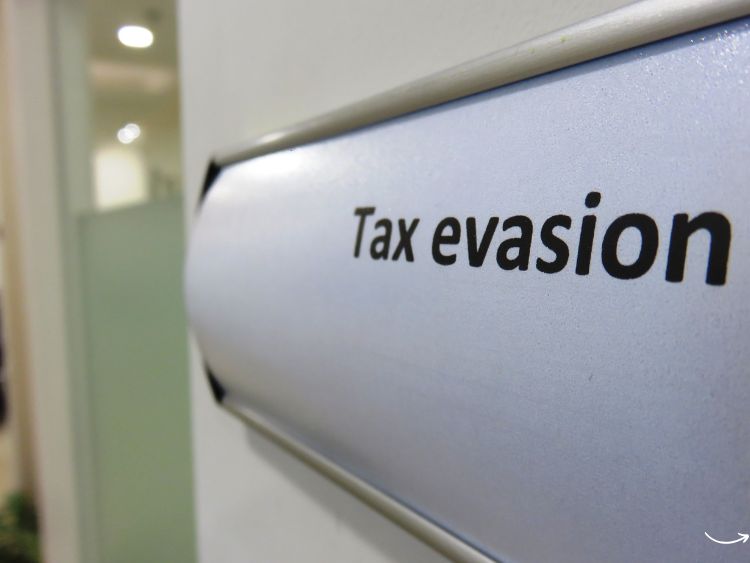When it comes to household names in the toy industry, Mattel is right up there with the best. Known for iconic brands like Barbie, Hot Wheels, and Fisher-Price, Mattel has been a staple in children’s playrooms for decades. However, beyond the cheerful facade of its colorful toys lies a serious and often controversial issue: tax evasion. In this article, we’ll delve into the depths of Mattel’s tax evasion scandals, examining the methods they used, the consequences they faced, and what it all means for the company and its stakeholders. Buckle up; this is one rollercoaster ride you won’t want to miss.
What is Tax Evasion?
Before diving into Mattel’s specific case, it’s crucial to understand what tax evasion entails. Tax evasion refers to illegal activities aimed at avoiding paying taxes. This can include underreporting income, inflating deductions, hiding money in offshore accounts, and more. Companies engaging in tax evasion often use complex financial structures to conceal their activities from tax authorities.
The Beginnings of Mattel’s Tax Troubles
Mattel’s tax issues didn’t spring up overnight. They are the culmination of years of financial maneuvers aimed at reducing the company’s tax burden. The toy giant’s first major brush with tax authorities occurred in the early 2000s. Reports began to surface about Mattel’s aggressive tax strategies, including profit shifting and the use of offshore subsidiaries.
Profit Shifting
Profit shifting is a technique used by multinational companies to move profits from high-tax jurisdictions to low-tax or no-tax jurisdictions. By doing so, companies can significantly reduce their overall tax liability. Mattel was accused of shifting profits to subsidiaries in tax havens, thereby lowering its taxable income in the United States.
Offshore Subsidiaries
Offshore subsidiaries are another common tool in the tax evasion toolkit. By setting up subsidiaries in countries with favorable tax laws, companies can funnel profits through these entities and avoid higher taxes in their home country. Mattel reportedly had numerous subsidiaries in locations like the Cayman Islands and Luxembourg, notorious for their lenient tax regimes.
The Whistleblower’s Revelation
The real turning point in Mattel’s tax evasion saga came when a whistleblower, an insider with intimate knowledge of the company’s financial practices, stepped forward. This individual provided detailed information to tax authorities, exposing the intricate web of schemes Mattel used to dodge taxes. The whistleblower’s revelations were a bombshell, leading to investigations and legal battles that would plague Mattel for years.
The Consequences of Tax Evasion
Tax evasion is not a victimless crime. It has far-reaching consequences for both the company involved and the broader society. When a corporation like Mattel evades taxes, it deprives the government of revenue that could be used for public services like education, healthcare, and infrastructure. Moreover, it creates an uneven playing field, giving tax-evading companies an unfair advantage over those that comply with the law.
Legal Repercussions
Mattel faced a slew of legal challenges as a result of its tax evasion activities. Tax authorities in multiple countries launched investigations, leading to hefty fines and settlements. In some cases, Mattel had to pay back taxes with interest, amounting to hundreds of millions of dollars. These legal battles tarnished Mattel’s reputation and strained its financial resources.
Financial Impact
The financial impact of tax evasion scandals can be devastating. Mattel’s stock price took a hit as news of the investigations broke, and the company had to allocate significant funds to cover legal fees and settlements. Additionally, the negative publicity surrounding the scandal affected consumer perception, potentially impacting sales.
Mattel’s Response
In the wake of the scandal, Mattel took several steps to address the issues and rebuild its reputation. The company implemented stricter compliance measures and revamped its financial practices to ensure transparency and legality. Public statements were made, acknowledging past mistakes and committing to better corporate governance in the future.
Corporate Governance Reforms
To restore trust, Mattel overhauled its corporate governance structure. This included appointing new board members with expertise in ethics and compliance, establishing an independent audit committee, and enhancing internal controls. These reforms aimed to prevent future instances of tax evasion and ensure that the company operated with integrity.
Public Relations Campaign
In addition to internal reforms, Mattel launched a public relations campaign to rehabilitate its image. This included marketing initiatives highlighting the company’s commitment to ethical business practices and social responsibility. By focusing on positive contributions, such as charitable donations and sustainability efforts, Mattel sought to shift the narrative away from its tax evasion past.
FAQs
What is Mattel accused of in the tax evasion scandal?
Mattel is accused of engaging in various tax evasion tactics, including profit shifting and using offshore subsidiaries to reduce its tax liability. These actions allegedly allowed the company to avoid paying significant amounts in taxes.
How did Mattel’s tax evasion come to light?
The scandal came to light through the actions of a whistleblower who provided detailed information to tax authorities. This led to investigations and legal actions against the company.
What were the consequences for Mattel?
Mattel faced legal repercussions, including hefty fines and settlements. The scandal also had a financial impact, affecting the company’s stock price and reputation. Additionally, Mattel had to implement significant corporate governance reforms to address the issues.
How has Mattel responded to the scandal?
Mattel has taken steps to improve its corporate governance and financial practices. This includes appointing new board members, enhancing internal controls, and launching a public relations campaign to rebuild its reputation.
Why is tax evasion a serious issue?
Tax evasion is serious because it deprives governments of revenue needed for public services and creates an uneven playing field for businesses. It undermines trust in the corporate sector and can have significant legal and financial consequences for the companies involved.
Conclusion
Mattel’s tax evasion scandal serves as a cautionary tale for corporations worldwide. While the lure of reduced tax liabilities can be tempting, the consequences of illegal tax evasion far outweigh the benefits. For Mattel, the road to redemption has been long and challenging, but the steps taken toward better governance and ethical practices are promising. As consumers and stakeholders, it’s crucial to hold companies accountable and advocate for transparency and fairness in corporate conduct. In the end, integrity is not just good ethics; it’s good business.





